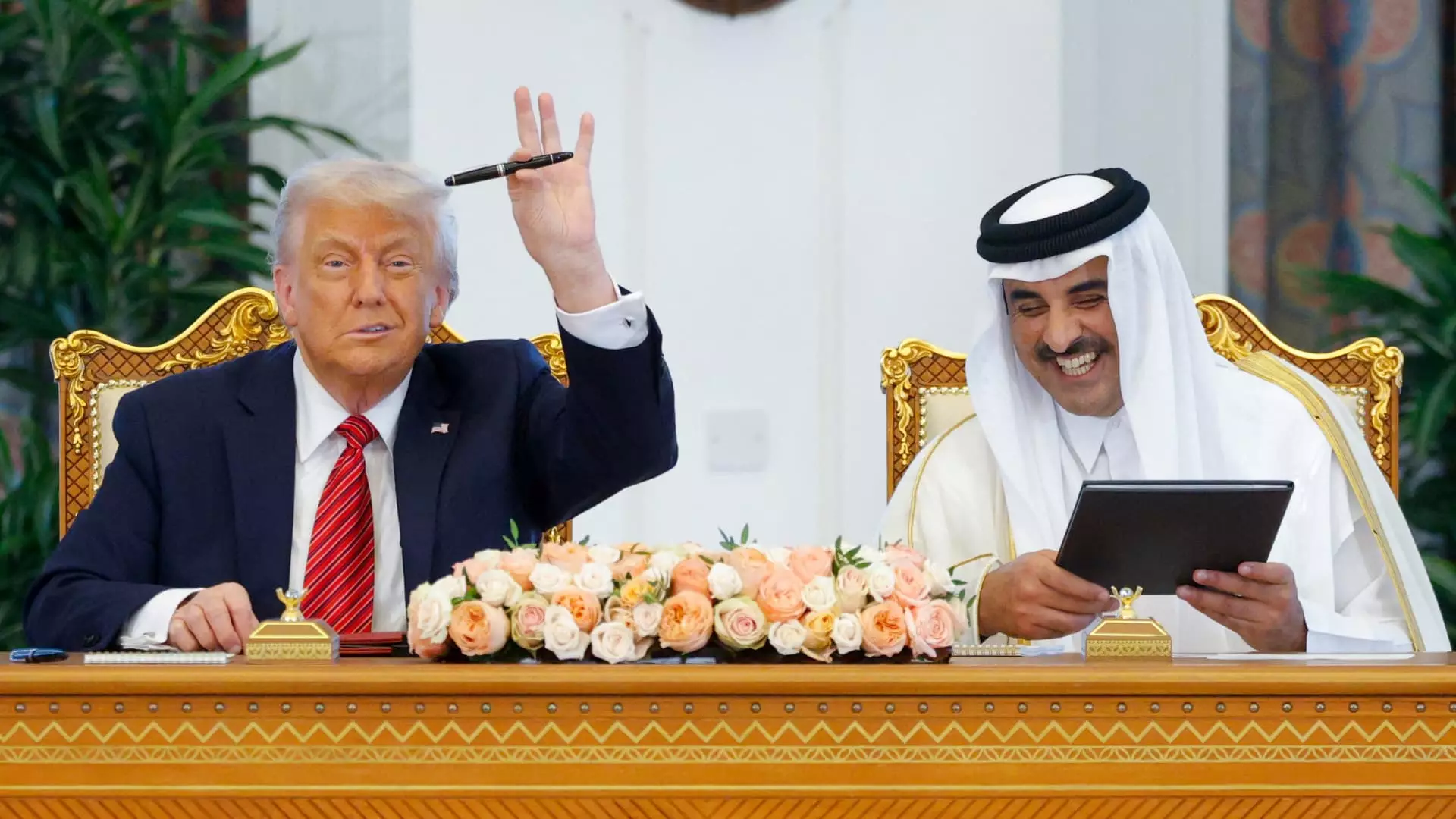The recent discussions surrounding Qatar’s proposal of a lavish $400 million Boeing 747 jet for former President Donald Trump present a vivid picture of the ethical complications involved in global diplomacy. Sheikh Mohammed bin Abdulrahman al-Thani, Qatar’s Prime Minister, asserted that the plane was merely a “normal” transaction between friendly nations. However, the implications of such a statement deserve deeper scrutiny, as they appear to skirt dangerously close to the notion of using extravagant gifts as instruments of influence—an act that cannot merely be brushed off as routine behavior in diplomacy.
When al-Thani emphasizes that the relationship between Qatar and the United States is “institutional,” it raises the question: how institutional can it be if one country offers such jaw-dropping gifts? While acts of goodwill between allies are indeed fundamental to forging strong ties, the scale of this particular gesture seems almost excessive and questionable. Are we witnessing the normalization of a political culture where foreign entities can buy influence with high-value gifts, thereby undermining the very principles of integrity and accountability that democratic societies should uphold?
Congress’s Role in Safeguarding Democracy
Democrats have voiced their concerns vehemently, arguing that we are standing at the precipice of a significant constitutional crisis. Under the Foreign Emoluments Clause, foreign gifts to federal officeholders require congressional consent. The remarks from Representative Jamie Raskin and Senator Chris Murphy underline an urgent need for Congress to reassess its obligations. It’s not merely about the plane; it’s about setting a precedent for what can be accepted without oversight.
The reaction from members of Congress highlights an essential facet of American democracy: checks and balances. The founding fathers devised a framework aimed at preventing the usurpation of power and influence by any single entity. When foreign entities can distribute opulent gifts to high-ranking officials, it invites a myriad of potential abuses and ethical quandaries. It transforms the political landscape into a marketplace where values and principles could easily be traded for favor, thereby eroding the trust citizens place in their government.
The Price of Friendship: Unpacking Diplomatic Relationships
Qatar’s Prime Minister suggests that such gifts are “mutually beneficial,” but one must question whose interests are truly being served. While it is tempting to praise the notion of diplomatic cooperation, we must hold these nations accountable for how such exchanges impact sovereign governance and national interests. Historic friendships between nations must not be smeared by acts that lean towards bribery or corruption.
Moreover, President Trump’s cavalier social media post suggests a nonchalance towards issues of ethical governance. The assertion that the prospective jet would be initially accepted for use but later shifted to a presidential library has the whiff of a poorly veiled tactic to bypass scrutiny. In a time when public faith in political institutions is already waning, such actions flame the fires of skepticism.
This incident beckons for a more robust conversation around the potential ramifications of foreign gifting in modern diplomacy. Beyond sheer opulence, what does it mean for a nation to exchange large assets with leaders who are under scrutiny? Are these transactions capable of influencing foreign policy decisions? When loyalty can be swayed by the allure of wealth, principled diplomacy stands at risk of being relegated to mere transactional interactions devoid of moral foundation.
The Broader Implications: A Call for Transparency
In dissecting the layers of this Qatar-United States affair, one cannot overlook the broader implications for international relations and domestic governance. Are we nurturing a political environment that tolerates the acceptance of foreign luxuries in exchange for policy favor? We need to demand transparency at every end of the transaction. If the U.S. government can accommodate foreign gifts at this magnification, what safeguards are in place to ensure they don’t sculpt our foreign policy into a puppet show driven by international wealth?
The line between diplomacy and ethical misconduct is dangerously delicate, and the current trajectory, if unbridled, poses a threat to the foundational ideals of democracy. The ongoing debates—and alleged legislative efforts—should not merely remain a whisper in the halls of power; they must resound as a strong clarion call for accountability, transparency, and the reaffirmation of public trust. As these events unravel, we should persist in demanding that Washington remains untarnished by the allure of foreign influence shrouded in opulence.

Leave a Reply